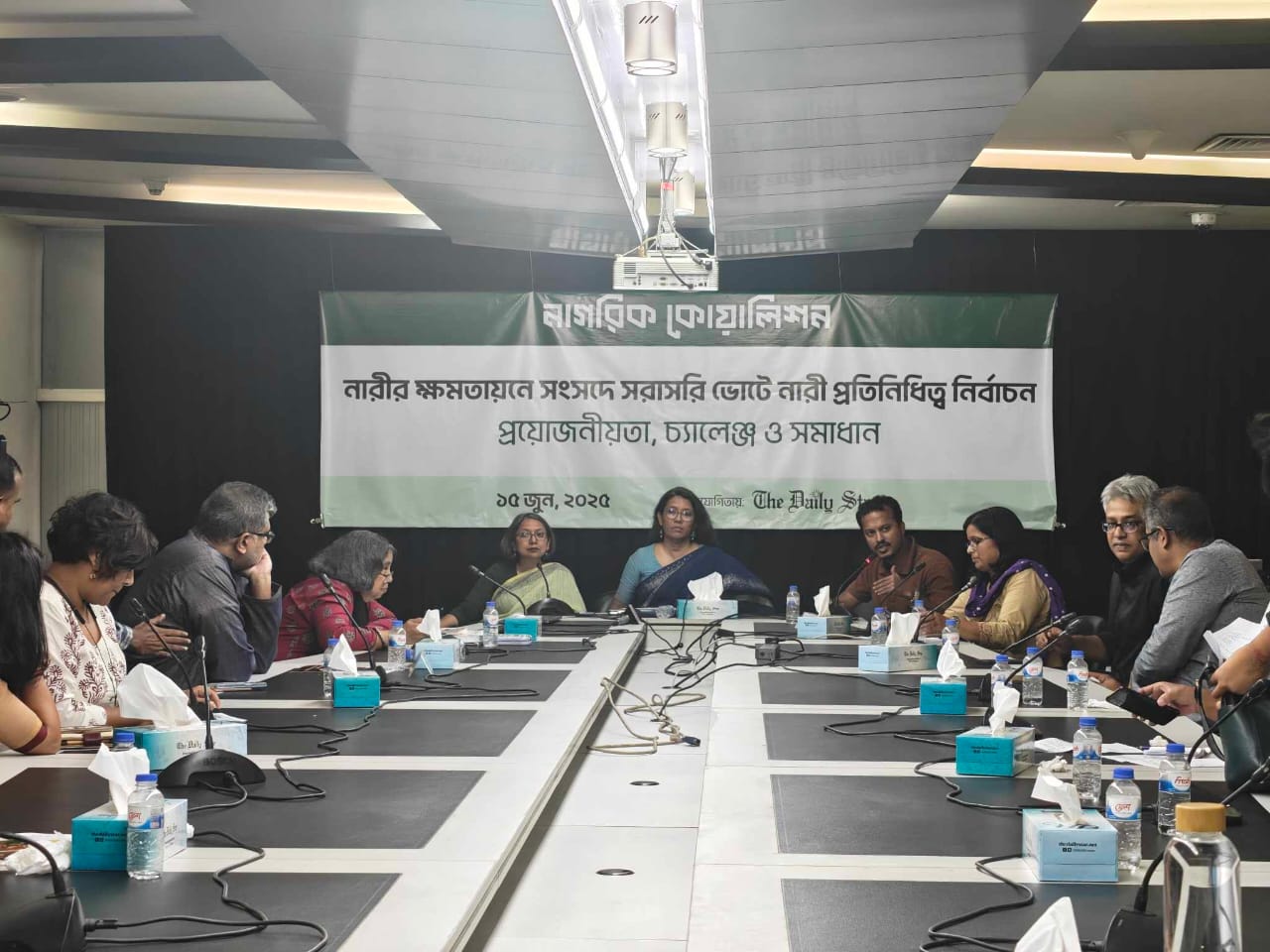A broad cross-section of political party representatives and reform advocates, at a roundtable organised by the Nagorik Coalition on Sunday called for structural changes to women’s representation in the National Parliament.
They urged direct elections to reserved seats and a significant increase in women’s participation in national politics.
In the discussion “Women’s Political Empowerment through Direct Elections to Parliament: Necessities, Challenges, and Solutions” held at The Daily Star Conference Hall, participants debated proposals to reshape the country’s electoral system to better reflect gender equity.
The Citizen Coalition proposed a sweeping reform: increasing the number of parliamentary seats with 100 directly elected seats reserved for women, replacing the current system where 50 reserved seats are allocated through party nomination.
“If women are elected through direct voting, it will not only empower them but also avoid the debate over proportional representation,” said Dr Debapriya Bhattacharya, distinguished fellow at the Centre for Policy Dialogue (CPD). “This could also help strengthen the legitimacy of women’s political participation.”
Badiul Alam Majumdar, who leads the Electoral Reform Commission, voiced caution. “You can’t have two pirs (religious leader) in one house,” he said, warning that creating dual representation without electoral accountability could be politically chaotic.
He also warned that increasing reserved seats to 100 without direct elections could worsen nomination trading.
Others, however, disagreed.
Shireen Parveen Haque, chair of the Women’s Affairs Reform Commission, opined, “Expanding the number of parliamentary seats is a timely demand. To break systemic hostility towards women, we must go beyond traditional electoral arrangements.”
The Bangladesh Nationalist Party (BNP), which has long backed parliamentary reforms, signalled support. “Both direct and reserved types of representation must be maintained to ensure balance,” said BNP Organising Secretary Shama Obaid.
“We agree to increase the number of reserved seats from 50 to 100 by 2026,” she added.
Asaduzzaman Fuaad, secretary general of the AB Party, urged parties to allocate at least 5–10 per cent of direct nominations to women, especially in urban constituencies.
From the National Citizen Party (NCP), Senior Joint Member Secretary Tasnim Jara criticised the lack of voter participation in electing women to reserved seats. “The public is being denied the right to choose their women representatives. Reserved seats must be tied to direct elections and specific constituencies,” she said.
Student voices also joined the discussion. “When girls are given the platform, they deliver,” said Umama Fatema of Students Against Discrimination. “Political parties must create space for women to lead.”


